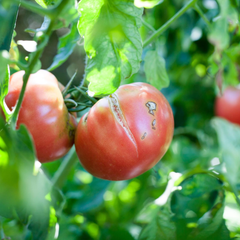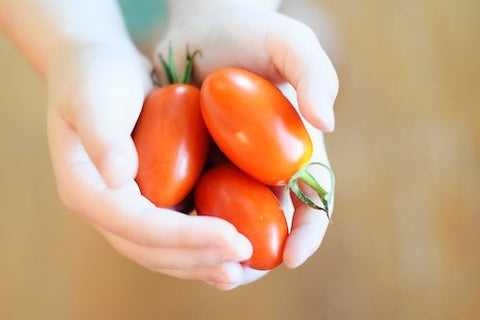Harvesting Summer Vegetables
What’s in Season?
You’ve worked so hard all season long – watering, pruning, weeding, mulching, fertilizing, and chasing off those pesky critters. Now it’s time to reap the rewards of your efforts! This time of year in New Jersey, we’re harvesting veggies like beets, broccoli, cabbage, eggplant, okra, peppers, potatoes, squash, and tomatoes. On the fruit side, we’re still seeing peaches, nectarines, and pears.
Caring for Plants During Harvest Season
Your plants are expending a tremendous amount of energy while producing fruit. Give them all the support they need by ensuring the soil is adequately and consistently fertilized and watered throughout the growing season.
Feeding
Making sure your plants have enough food is crucial, especially if you’re growing in containers. Heavy feeders like peppers, tomatoes, squash, eggplant, broccoli, and cabbage will benefit from regular applications of an all-purpose plant food. We love Jack’s Classic All Purpose because it’s ready to mix into sprayers and watering cans and easy to control the dosage. Moderate feeders like beets, potatoes, and okra can benefit from a good feeding at planting, but don’t need nearly as much support as heavy feeders.
You can also side dress your veggies with a granular fertilizer, compost, bone meal, or similar food. Heavy feeders or plants with a long growing season can benefit from two or three applications per season. Moderate & light feeders can benefit from an application at planting and if necessary, another application midseason. Side dressing helps replenish the nutrients in the soil that have been taken up by the roots throughout the season.
Watering
 It’s important to keep an eye on watering your plants when they are bearing fruit. Ensure the plants are getting consistent, even watering, especially on those extra-hot dog days of summer. Dry spells followed by large rainfalls can cause cracking or splitting in veggies like peppers and tomatoes! This is because excess water can cause the fruit to grow and swell faster than its skin can keep up. To avoid this, just make sure your plants are receiving consistent water.
It’s important to keep an eye on watering your plants when they are bearing fruit. Ensure the plants are getting consistent, even watering, especially on those extra-hot dog days of summer. Dry spells followed by large rainfalls can cause cracking or splitting in veggies like peppers and tomatoes! This is because excess water can cause the fruit to grow and swell faster than its skin can keep up. To avoid this, just make sure your plants are receiving consistent water.
Pruning & Weeding
Regularly prune any yellowing or diseased leaves with clean, sharp scissors to avoid spreading fungal or insect infestations. Remove any weeds or unwanted plant neighbors and keep up with regular garden maintenance. Refreshing the mulch will help keep weeding down!
Harvesting
Harvesting your fruits and veggies will allow the plant to direct its energy to new flowers and fruit. You will want to make sure they’re picked while they are still a bit small, but at the peak of tenderness. You’ll also want to watch out for any signs of disease or pest issues – for example, blossom end rot on tomatoes or extensive cracking in peppers. If you notice any of these issues with your crops, it may be best to pick and toss them to allow the plant to put that energy into healthier fruit.
After your plants are harvested and picked, you can start working on removing spent plants. If you compost at home, you can add healthy spent plant material to your compost pile! Leave out any diseased materials so as not to contaminate the rest of the pile.





Leave a comment